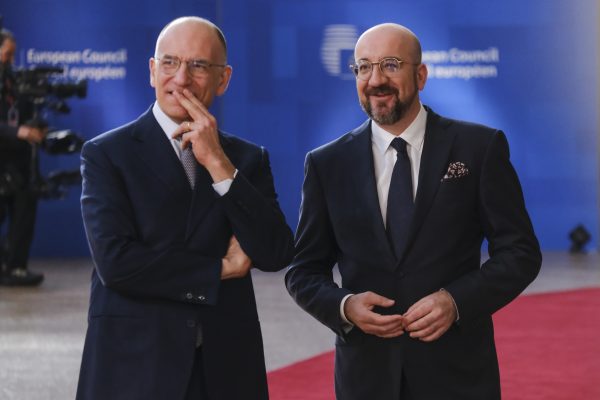Taiwan’s TSMC alone is an economic superpower. Its leading-edge, small semiconductors are irreplaceable. The US and Germany are subsidizing the company’s new foundries to ensure supply security.
But Taiwan tech is broad and deep. Policymakers should take note and be careful about pouring all their public support into a single vehicle. The large thriving Taiwanese tech ecosystem holds important opportunities.
The Hsinchu Science Park, modeled on Silicon Valley, dates from 1980. An hour train ride southwest from Taipei City, Hsinchu is easy to access for the business visitor and an affordable commute for the almost exclusively male engineering workforce. It hosts an impressive array of electronic and semiconductor companies. Mediatek, a start-up only 25 years ago, has overtaken former heavyweights of the smartphone chip industry such as Texas Instruments and Philips Semiconductor. It is second only to the mighty Qualcomm in smartphone System-on-Chips, having made smart acquisitions such as the UK wireless assets of Analog Devices.
Hsinchu also hosts lesser-known but elite chip businesses such as display chip company Novatek, and connectivity and multimedia leader Realtek both ubiquitous in today’s electronics. When I entered their offices, I could have been in California.
Other large, small, and medium-sized companies are located in and around Taipei such as Wistron, BenQ, Asus, and MSI. They are embedded in the global electronics supply chain for PCs, peripherals, and displays.
Unlike TSMC, Western governments do not court these Taiwanese titans. Are we missing something? With small incentives such as tax breaks, could these companies participate in more “friend-shoring,” to de-risk from China? Or could some EU or US tech startup support programs be geared towards Taiwan to share innovation and facilitate business engagements?
Taiwan’s thriving tech startup scene benefits from cleverly targeted domestic government support. The Garage+ program supports altruism-driven start-ups to “better the world” — that includes start-ups outside of Taiwan! As Chief Operating Officer of Spectral Edge, I participated in StartUP@Taipei, to look for local partnerships and investment. The program funds overseas start-ups to come to Taipei and exhibit their wares. This helped us build relationships and collaboration with Taiwanese companies, and even meet potential Taiwanese investors.
This kind of innovative environment, open to the outside world and serving the global supply chain, can only thrive in an open society in which entrepreneurs are an asset to the government, not perceived as a threat as they are in authoritarian regimes.
We can learn from Taiwan and benefit from its success. Taiwanese companies should receive targeted incentives, such as tax breaks and subsidies, to invest in Europe and the US. They do not require large sums needed by TSMC for its giant foundries. The UK’s own tech centers such as the Wales compound semiconductor cluster could be encouraged to collaborate with the Taiwanese industry, which signs and respects agreements drafted under Californian, Delaware, or English law. This legal adaptability makes Western partners confident that their IP is safe and won’t be stolen at the whim of the Chinese Communist Party.
Western governments should ignore fears of upsetting China. The UK’s Compound Semiconductor Applications Catapult signed a Memorandum of Understanding with Taiwan’s Industrial Technology Research Institute in 2020. The EU has stated an intention to deepen collaboration with Taiwan through its Chips Act. Beijing has not responded.
While the US may stop short of adding Taiwan to the 20 countries with which it has free trade agreements, a deal for tariff-free trade could be formalized and announced for Taiwan electronics, just as the US has done for critical mineral trade with Japan. The EU could do something similar, focusing on mutually beneficial technology trade with Taiwan.
The West wants to stay ahead in the innovation race. Taiwan represents an indispensable ally.
Christopher Cytera CEng MIET is a Non-resident senior fellow with the Digital Innovation Initiative at the Center for European Policy Analysis and a technology business executive with over 30 years of experience in semiconductors, electronics, communications, video, and imaging.
Bandwidth is CEPA’s online journal dedicated to advancing transatlantic cooperation on tech policy. All opinions are those of the author and do not necessarily represent the position or views of the institutions they represent or the Center for European Policy Analysis.





